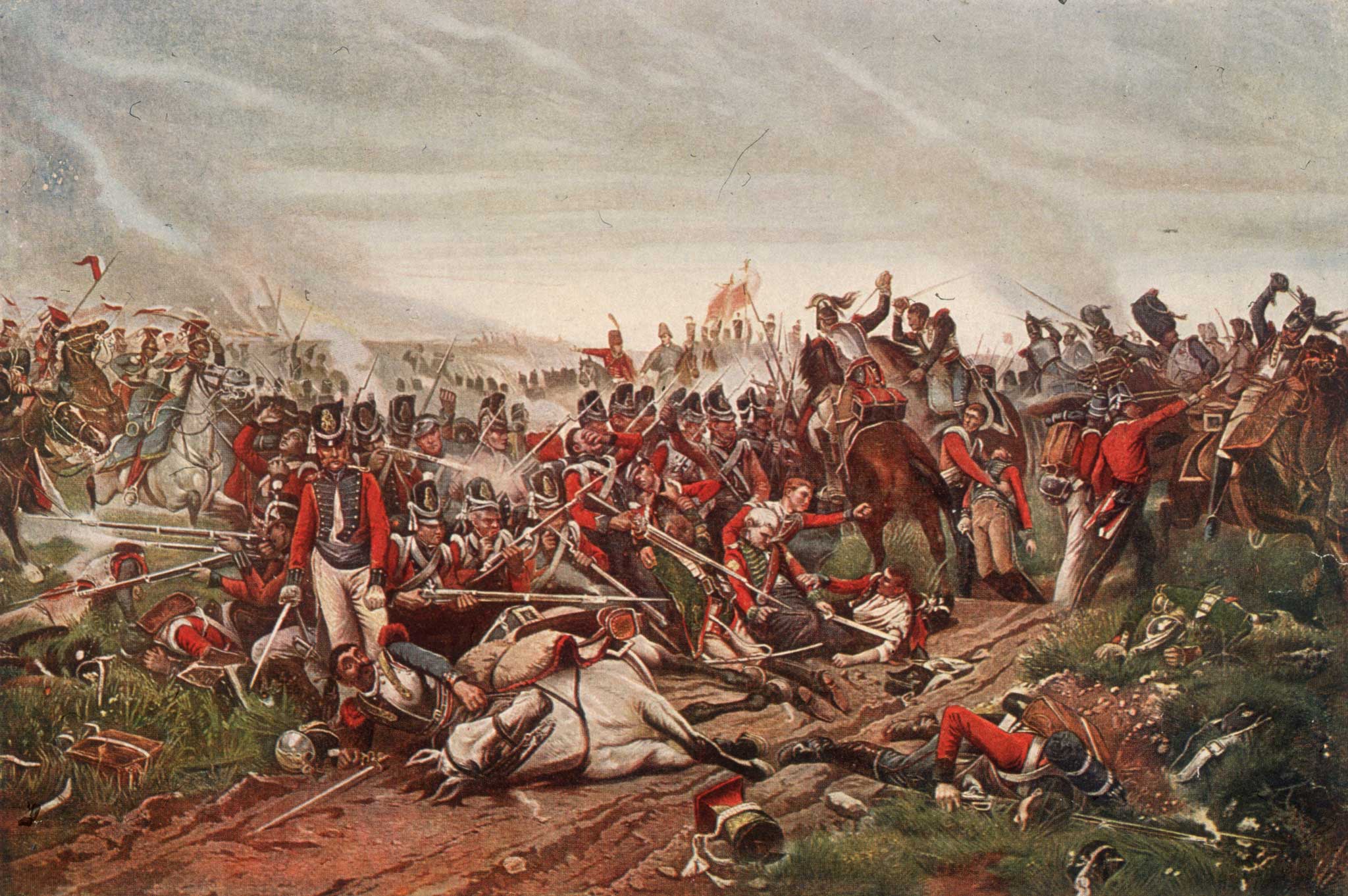24 Hours at Waterloo by Robert Kershaw; Waterloo: The History of Four Days by Bernard Cornwell, book reviews
As the bicentenary of Waterloo nears, two admirable books provide fresh insights

Your support helps us to tell the story
From reproductive rights to climate change to Big Tech, The Independent is on the ground when the story is developing. Whether it's investigating the financials of Elon Musk's pro-Trump PAC or producing our latest documentary, 'The A Word', which shines a light on the American women fighting for reproductive rights, we know how important it is to parse out the facts from the messaging.
At such a critical moment in US history, we need reporters on the ground. Your donation allows us to keep sending journalists to speak to both sides of the story.
The Independent is trusted by Americans across the entire political spectrum. And unlike many other quality news outlets, we choose not to lock Americans out of our reporting and analysis with paywalls. We believe quality journalism should be available to everyone, paid for by those who can afford it.
Your support makes all the difference.There are still nine months to go before 18 June 2015, the bicentenary of the Battle of Waterloo, but the publishing industry has already opened the bombardment. First in the field – as befits a colonel from the Parachute Regiment – is Robert Kershaw with a blow-by blow account of the fateful day. I couldn't put it down.
Drawing on a wide range of letters and memoirs, Col Kershaw tells in compelling detail exactly what happened, as seen by those who were there. But this is no warm bath of "war is hell" sentimentality, and neither is it a bloodless game of chess played by high commanders. Kershaw is a soldier: he ignores neither the horrors of war nor the heroism; and he knows not only what it is like, but what it all means.
Here is the climactic moment of the disastrous charge of the French heavy cavalry: "Still 'boot to boot', the charge à la sauvage or the 'wild charge' was sounded by bugle. The troops stood up in their stirrups en masse to give their horses free rein. Those in front held sabres outstretched, pointing at the enemy. 'Avancez!' [Forward!] they shouted in acknowledgement of the command, amid cries of 'Vive l'Empereur!' Officers fell back in line as the NCOs spurred forward from the rear ranks to position themselves for the impact. Up ahead they anticipated a target-rich cavalry environment, in which Wellington's retreating army would be dealt the coup de grâce, but as they breasted the ridge and entered the reverse slope plateau, they were confronted by something totally unexpected: a chequerboard configuration of infantry squares."
As an exposition of the "transactions" of the battlefield this book stands comparison with John Keegan's classic, The Face of Battle.
Bernard Cornwell, author of the Sharpe historical novels, turns from fiction to fact, to provide an account that is both a vivid and scholarly. Readers new to the Waterloo campaign could hope for no better introduction, and veterans will find fresh insights.
Cornwell, with his wider perspective on all four days of the campaign, makes one thing very clear: the famous mystery of why and how Napoleon lost the battle is no mystery at all. He didn't lose it; it was lost for him by his two immediate subordinates, Marshals Ney and Grouchy.
Ney may have been suffering from post-traumatic stress disorder, after his experiences on the retreat from Moscow in 1812. For whatever reason, he fumbled badly twice: through excessive caution when he failed to push the British aside at Quatre Bras; and through recklessness when he threw the French heavy cavalry away at Waterloo.
Grouchy, a newly promoted marshal, should perhaps not be too severely blamed for failing to find the retreating Prussians soon enough to pin them down and stop them coming to Wellington's rescue at Waterloo – the weather on the night of 17-18 June was awful and nobody knew where anybody was – but his failure to march to the sound of the guns on the 18th has no excuse.
Napoleon's fatal blunder, I suggest, was committed before the campaign started, when he insisted on leaving Davout, the best of his marshals, behind in Paris as minister of war. If the victor of Auerstädt had been there in the place of Ney, or of Grouchy, then it might all have turned out differently.
These two admirable books share one minor defect – a clumsy translation into English of the notorious "mot de Cambronne". As the French army disintegrated, the last square of the Imperial Guard held out. In command was General Cambronne. To a demand to surrender he is said to have replied with a single shouted word: "Merde!"
Both Kershaw and Cornwell render the defiant monosyllable as "Shit!" That is not a wrong translation of the French word, but it is not the right English word for the occasion. "Shit!" manifests exasperation and anger, not contempt and defiance. Surely Cambronne's sentiment would be better expressed by "Crap!"
Join our commenting forum
Join thought-provoking conversations, follow other Independent readers and see their replies
Comments